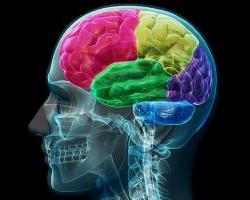Can virtual reality help scientists unravel the brain mechanisms behind OCD?
People at Columbia University recently used a virtual reality maze and magnetic resonance brain imaging to research brain differences in individuals with OCD (obsessive-compulsive disorder).
Specifically, the Columbia researchers wondered how the brains of those with OCD may differ from non-OCD brains while doing a reward-based learning activity—such as navigating a virtual maze.
Virtual Rewards
Our brain’s amygdala and hippocampus join forces with the frontal cortex to provide a neurological reward system. This system is how the brain anticipates, reacts to, and learns from tasks that reward us. The amygdala and hippocampus are also involved with the experience of anxiety, and possibly OCD behaviors.
Some of the Columbia study participants were diagnosed with OCD, but did not take medication for the symptoms. The remaining participants did not have OCD. Both sets of participants completed the challenge phase, and the control phase of the study.
In the challenge phase, each person used landscape cues (e.g., flowers, trees) to remember where they had traveled on a virtual maze and to find rewards. During the control phase, landscape cues were scrambled so they could not be used to locate rewards. Brain imaging revealed what areas of the participant’s gray matter were activated during each phase.
Brain Differences
The study participants with OCD, when compared to non-OCD participants, showed more activation of their hippocampus when using cues to remember the maze layout. During the exercise, those with OCD did not engage their ventral striatum - part of our brain’s reward system - but the non-OCD participants did.
The reward mechanism was clearly working differently in the study participants with OCD, and the difference may contribute to obsessive-compulsive behaviors. By mapping OCD brain anomalies, scientists hope to find more effective treatments for the disorder.
Source: BBR Foundation
Photo credit: aboutmodafinil.com / flickr creative commons






